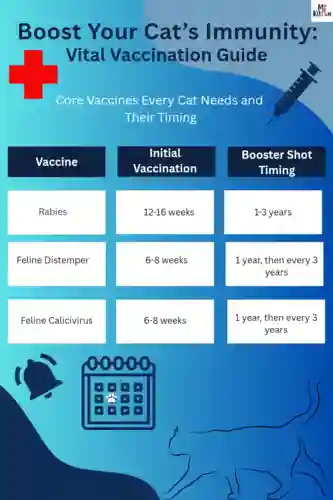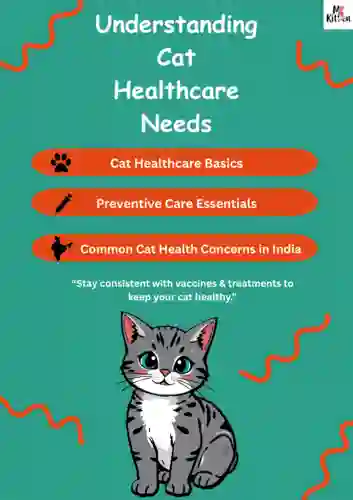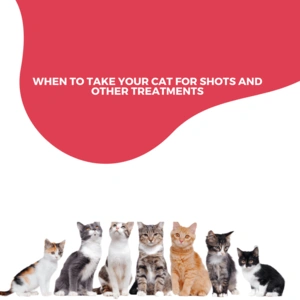Comprehensive Guide to Cat Vaccinations and Treatments in India
Your Cat's Health: Timing Vaccination Shots and Other Treatments in India
Are you aware of the crucial role timely vaccinations and treatments play in maintaining your cat’s overall health?
As a responsible cat owner, it’s essential to stay on top of your pet’s healthcare schedule, including flea prevention shots, heartworm prevention shots, vaccine booster shots, and rabies shots.
Neglecting these essential treatments can put your cat at risk of contracting serious diseases, making it vital to understand the importance of cat health maintenance.
It’s one thing to say that cats have nine lives, but in the true sense, the proverb is worthless if their health is not in the pink. Since they are a part of your family, it becomes extremely important for you to keep a check on their health and get them the necessary treatment whenever needed.
Just like other pets, cats also need to be vaccinated and given necessary preventive shots. However, it is important for you to be aware of the basic timeline and frequency of these preventive treatments so that you don’t skip anything and risk the life and health of these mostly nonchalant creatures. The frequency of shots varies on the cat’s geographical location, lifestyle, life stage, and immune system functions.
Navigating Feline Vaccinations and Medical Care in India
Understanding Your Cat's Healthcare Needs
Understanding the healthcare needs of your cat is crucial for maintaining their overall well-being. Cats require regular health check-ups and preventive care to stay healthy.
The Importance of Preventive Care
Preventive care is a critical aspect of cat health maintenance. It involves regular vaccinations, parasite control, and dental care to prevent diseases. By focusing on preventive care, cat owners can significantly reduce the risk of their pets contracting serious illnesses.
- Regular vaccinations to protect against common feline diseases
- Parasite control measures, including flea and tick prevention
- Dental care to prevent tartar buildup and gum disease
Common Health Concerns for Cats in India
Cats in India face specific health challenges due to the country’s climate and geographical conditions. Some common health concerns include:
- Flea and tick infestations, which can lead to diseases like typhus and tapeworm infestations
- Heatstroke during the hot summer months
- Respiratory infections, which can be exacerbated by the monsoon season
By being aware of these common health concerns, cat owners in India can take proactive steps to protect their pets.
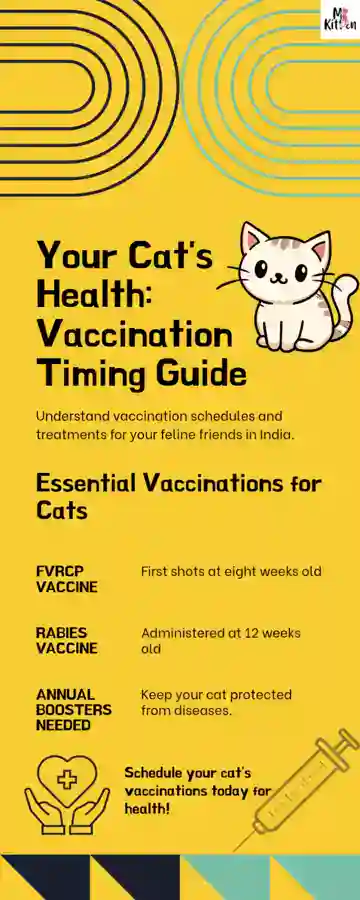
When to Take Your Cat for Shots and Other Treatments
To keep your cat healthy, it’s essential to know when to schedule vaccinations and other necessary treatments. The timing of these treatments can significantly impact their effectiveness and your cat’s overall health.
Kitten vs. Adult Cat Vaccination Schedules
Kittens and adult cats have different vaccination schedules. Kittens typically receive their first vaccinations at 6-8 weeks of age, followed by booster shots every 3-4 weeks until they are 16-17 weeks old. The core vaccines for kittens include those for feline distemper, feline calicivirus, and feline herpesvirus.
Adult cats, on the other hand, require booster shots periodically. The frequency of these boosters depends on the type of vaccine and the cat’s lifestyle. For example, an adult cat that spends time outdoors may require more frequent vaccinations against certain diseases.
- Kitten vaccination schedule: First dose at 6-8 weeks, followed by boosters every 3-4 weeks until 16-17 weeks.
- Adult cat vaccination schedule: Booster shots as recommended by the veterinarian based on the cat’s health and lifestyle.
Seasonal Considerations for Cat Treatments in Indian Climate
The Indian climate, with its varying temperatures and humidity levels throughout the year, can impact the health of your cat. For instance, the flea and tick season typically peaks during the warmer months, necessitating timely flea prevention treatments.
During the monsoon season, cats are more prone to waterborne and vector-borne diseases. Ensuring your cat is up-to-date on vaccinations and preventive treatments before the onset of the monsoon can be crucial.
Key considerations include:
- Flea prevention treatments during warmer months.
- Vaccinations and preventive care before the monsoon season.
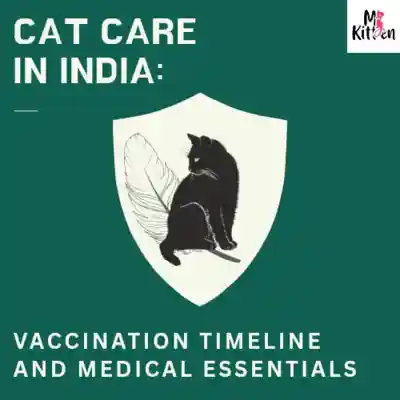
Heartworm Prevention for Felines
Heartworm disease poses a significant risk to cats, making prevention a key component of their healthcare regimen. Heartworms are parasites that can cause severe health issues in cats, including respiratory problems and organ damage.
Understanding Heartworm Disease Risk in Indian Cats
Indian cats are at risk of heartworm disease due to the country’s climatic conditions, which favor the survival and propagation of the mosquitoes that transmit heartworms. The risk is particularly high in regions with warm and humid climates.
Heartworm disease can lead to serious health complications in cats, including heart failure and lung disease. Regular preventive measures are crucial to mitigate this risk.
Recommended Heartworm Prevention Schedule
A heartworm prevention schedule typically involves administering preventive medication to cats on a regular basis. The most common recommendation is to give heartworm preventives monthly, year-round, to ensure continuous protection against heartworm infection.
| Prevention Method | Frequency | Benefits |
| Monthly Oral Medication | Every 30 days | Effective against heartworms and often against other parasites |
| Topical Treatments | Monthly | Easy to apply and effective against multiple parasites |
| Injectable Preventives | Every 6 months | Convenient for pet owners who have difficulty with monthly administration |
Combining Heartworm Prevention with Other Treatments
Combining heartworm prevention with other treatments, such as flea and tick prevention, can provide comprehensive parasite control for cats. Many products are available that combine multiple preventive measures into a single treatment, simplifying the care regimen for cat owners.
It’s essential to consult with a veterinarian to determine the best combination of treatments for your cat based on their health status, lifestyle, and the prevalence of various parasites in your area.
Spread by mosquitos, this is a worrisome health risk that must be prevented at all costs. Since mosquitos are capable of entering your house easily, your cat is at a much higher risk of getting infected by heartworm disease. These parasites bite the pet and if infected, may transfer a thread-like worm into their bodies. These worms, if left unnoticed, may damage the lungs and heart and cause serious health risks.
In case your cat gets infected, you should be able to identify the symptoms so you can get them treated as soon as possible.
Here are the symptoms you should look out for:
- Weight loss
- Lack of appetite
- Periodic vomiting
- Asthma-like attacks
- Coughing
- Difficulty walking
- Occasional seizures
- Fluid accumulation in the abdomen
- Fainting
The American Heartworm Society has recommended the prevention of heartworm in all cats (Indoor and Outdoor). Moreover, a heartworm preventive shot would also protect your cat from intestinal worms that can also spread to humans.
There is no specific time period within which the shot should be administered. However, the majority of owners don’t opt for a heartworm shot as the disease is prevalent in certain parts of the world — mostly tropical and temperate regions.
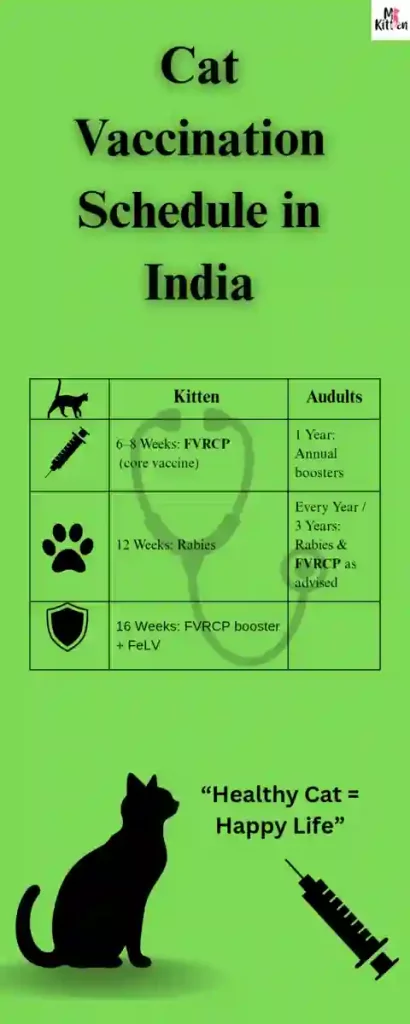
Flea Prevention Treatments for Cats
It is a popular belief that fleas are contagious and get transmitted from one pet to another. A cat infected with fleas may spread them to any other cat they come in contact with. With a remarkable ability to spread and survive, fleas can be a serious concern for your cat. Though it is easy to detect the fleas, they can make their way into your house without any help.
Therefore, the risk factor of your cat catching fleas is pretty high even if they don’t come in contact with any other animal. However, it is not necessary that every cat must be given flea shots every month. If your fuzzy pal has a healthy skin and no signs of any illness, he/she would only need occasional flea preventive shots.
Keep an eye on them in case the fleas are insidious. It is common among owners to not notice fleas on their pets. Therefore, it is recommended that you use any of the modern flea preventives available out there.
Fleas can cause significant discomfort to cats, making flea prevention a vital part of their care. Flea infestations can lead to skin irritation, allergic reactions, and even transmit diseases. Therefore, it’s crucial for cat owners to understand the various flea prevention methods available.
Types of Flea Prevention Methods Available in India
In India, cat owners can choose from a variety of flea prevention methods, including topical treatments, oral medications, and flea collars. Topical treatments are applied directly to the cat’s skin, usually between the shoulder blades, and can provide protection for several weeks. Oral medications work systemically and can be used in conjunction with other treatments. Flea collars are another option, releasing chemicals that repel or kill fleas.
| Flea Prevention Method | Description | Duration of Protection |
| Topical Treatments | Applied directly to the cat’s skin | Several weeks |
| Oral Medications | Work systemically to kill fleas | Varies by product |
| Flea Collars | Release chemicals to repel or kill fleas | Several months |
Optimal Timing for Flea Prevention Throughout the Year
The optimal timing for flea prevention depends on the regional climate. In India’s warm and humid climate, fleas can thrive year-round, making consistent prevention crucial. It’s advisable to consult with a veterinarian to determine the best flea prevention schedule for your cat, taking into account factors like the cat’s health, lifestyle, and local flea prevalence.
Signs Your Cat Needs Immediate Flea Treatment
Signs that your cat needs immediate flea treatment include excessive scratching, presence of flea dirt (small, dark specks) on their fur, and visible fleas. If your cat exhibits any of these symptoms, it’s essential to initiate flea treatment promptly to alleviate their discomfort and prevent further complications.
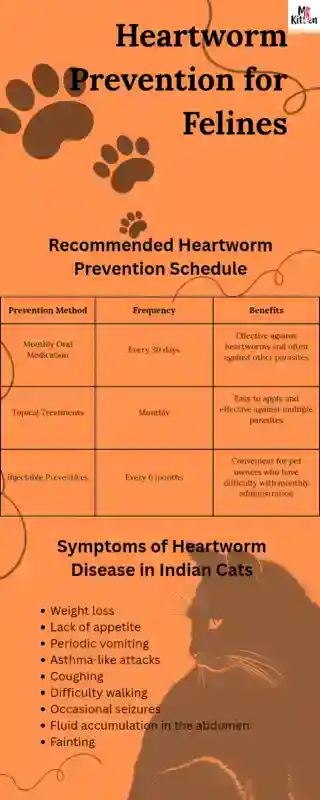
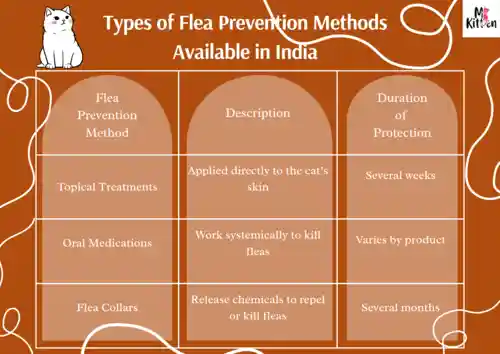
Essential Vaccine Booster Shots for Cats
Booster shots are not a thing that should be administered every now and then. This feline vaccination is recommended on the basis of the age of your cat. This higher the age, the less it is likely that your pet would need a vaccine. Therefore, kittens need shots, or else the chances would be higher of them not surviving in the initial months.
Feline panleukopenia, a virus that causes gastrointestinal, nervous system, and immune system disease, is the primary cause of kittens dying in the initial months. Booster shots are, therefore, recommended for all cats at 6-8 weeks, 10-12 weeks, and 14-16 weeks of age. The FVRCP booster vaccine is essential only until the cat is one year old.
For indoor cats, further booster shots can be given at 5-7 years of age. Since it is one of the most important vaccines of kittens, you should know about the two different vaccines available for outdoor and indoor kittens. The first one prevents feline leukemia and the other one prevents FeLV. There is a thin chance that your cat would be affected by FeLV as it present in the outdoor environment.
Ensuring your cat receives the right vaccinations at the right time is crucial for their health. Vaccinations play a vital role in protecting your cat from various diseases and maintaining their overall well-being.
Core Vaccines Every Cat Needs and Their Timing
Core vaccines are essential for all cats, regardless of their lifestyle or environment. These vaccines protect against severe and potentially life-threatening diseases. The core vaccines for cats typically include those against rabies, feline distemper, and feline calicivirus. Kittens usually receive their first vaccinations at around 6-8 weeks of age, followed by booster shots every 3-4 weeks until they are about 16 weeks old.
| Vaccine | Initial Vaccination | Booster Shot Timing |
| Rabies | 12-16 weeks | 1-3 years |
| Feline Distemper | 6-8 weeks | 1 year, then every 3 years |
| Feline Calicivirus | 6-8 weeks | 1 year, then every 3 years |
Non-Core Vaccines Based on Lifestyle and Environment
Non-core vaccines are recommended based on a cat’s lifestyle and environment. For example, cats that spend time outdoors may require vaccinations against diseases such as feline leukemia virus (FeLV). Your veterinarian can help determine the appropriate non-core vaccines for your cat.
Booster Shot Timing Throughout Your Cat’s Life
Booster shots are crucial for maintaining your cat’s immunity throughout their life. The timing of booster shots varies depending on the vaccine and your cat’s age, health, and lifestyle. Regular consultations with your veterinarian will help ensure your cat receives the necessary booster shots at the right time.
By understanding the importance of cat vaccinations and following the recommended cat vaccination schedule, you can help protect your cat from serious diseases and ensure they lead a healthy life.
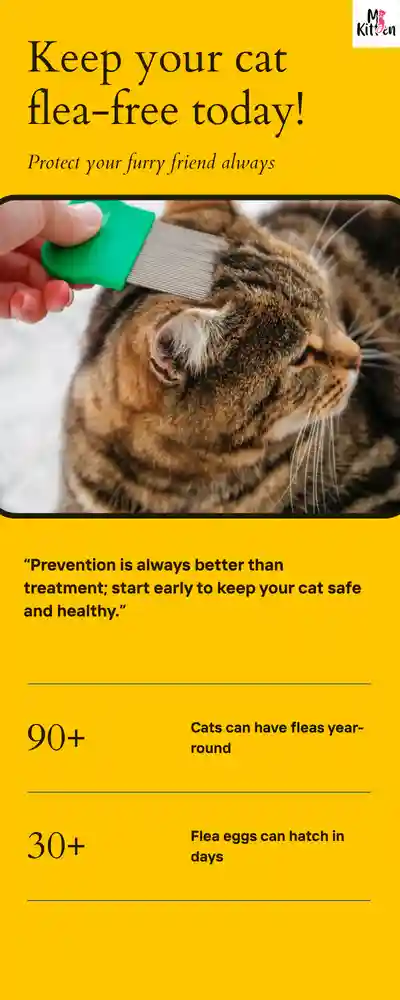
Rabies Vaccination Requirements and Timing
In India, where rabies is a significant public health concern, vaccinating cats against rabies is not only a legal requirement but also a crucial step in ensuring their health and safety. Rabies is a fatal viral disease that can be transmitted through the saliva of infected animals, typically through bites. Therefore, understanding the legal requirements and timing for rabies vaccination is vital for cat owners.
Legal Requirements for Rabies Vaccination in India
In India, the law mandates rabies vaccination for cats. The specific regulations may vary by state, but generally, the first rabies vaccination is administered to kittens at the age of 3 months, followed by a booster shot after 1 year. Subsequent vaccinations are typically required every 3 years, though this can vary based on local regulations and the type of vaccine used.
| State | Initial Vaccination Age | Booster Shot Interval |
| Delhi | 3 months | 1 year, then every 3 years |
| Maharashtra | 3 months | 1 year, then every 3 years |
| Tamil Nadu | 3 months | 1 year, then every 3 years |
Rabies Vaccination Schedule for Indoor vs. Outdoor Cats
While the legal requirements for rabies vaccination apply to both indoor and outdoor cats, the risk of exposure to rabies varies significantly between the two. Outdoor cats are at a higher risk due to potential interactions with infected animals. However, even indoor cats are not entirely safe, as bats or other infected animals could potentially enter homes. Therefore, adhering to the recommended vaccination schedule is crucial for all cats, regardless of their lifestyle.
Recognizing and Managing Vaccination Side Effects
While rabies vaccination is generally safe, some cats may experience side effects, such as lethargy, loss of appetite, or swelling at the injection site. Severe reactions are rare but can occur. It’s essential for cat owners to monitor their pets after vaccination and consult their veterinarian if they observe any unusual behavior or symptoms.
By understanding the legal requirements, appropriate vaccination schedules, and potential side effects, cat owners in India can ensure their pets receive the necessary protection against rabies, contributing to both public health and animal welfare.
This one is the final that is essential for protecting your cat from rabies. Being the deadliest of them all, rabies can kill both humans and cats. It is spread through direct contact with an infected animal. Though it is unlikely that an indoor cat would be infected by rabies, prevention is better than cure.
Vaccinating the cat depends on many factors including the local laws on rabies vaccination, tolerance for risk of getting infected, and the tendency of your cat to biting you and other people. It is better for you and your feline friend to get them vaccinated before anyone of you pay the price.
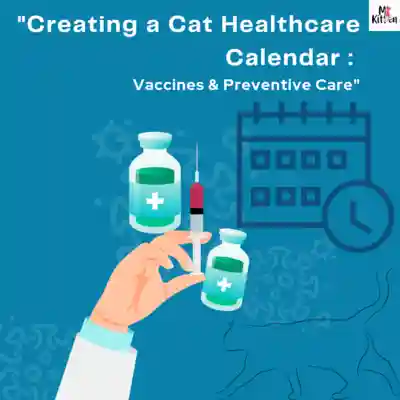
What to Be Careful Of When Managing Your Cat's Treatment Schedule
Cat owners must be vigilant when managing their pet’s treatment to avoid complications. A cat’s treatment schedule can include vaccinations, flea prevention, and heartworm prevention, among other treatments. Ensuring that these treatments are administered correctly and at the right time is crucial for the cat’s health.
Avoiding Treatment Overlaps and Interactions
One of the key challenges in managing a cat’s treatment schedule is avoiding overlaps and interactions between different treatments. For instance, administering certain vaccinations and flea prevention treatments simultaneously can lead to adverse reactions. To avoid this, it’s essential to keep a detailed record of your cat’s treatment history, including the dates of vaccinations, flea prevention treatments, and any other medications.
| Treatment Type | Frequency | Potential Interactions |
| Flea Prevention | Monthly | Certain Vaccinations |
| Vaccinations | Annually/As needed | Flea Prevention, Certain Medications |
| Heartworm Prevention | Monthly | Certain Vaccinations, Other Medications |
Recognizing Adverse Reactions to Treatments
It’s crucial to monitor your cat for any signs of adverse reactions to treatments, such as vomiting, lethargy, or skin irritation. If you notice any of these symptoms, consult your veterinarian immediately.
Working with Your Veterinarian to Create a Safe Schedule
Your veterinarian is a valuable resource in managing your cat’s treatment schedule. By working closely with them, you can create a personalized schedule that minimizes the risk of treatment overlaps and adverse reactions. Be sure to discuss your cat’s full medical history and any concerns you have.
Conclusion: Creating a Comprehensive Cat Healthcare Calendar
A well planned cat healthcare calendar is crucial for maintaining your cat’s overall health and well-being. This involves scheduling vaccinations, flea and heartworm prevention, and other necessary treatments at the right time.
By following a cat immunization timeline, you can ensure your cat receives all necessary vaccinations and boosters. This, combined with regular preventive care for cats, such as flea and heartworm prevention, will help protect your cat from various diseases and health issues.
To create an effective healthcare calendar, it’s essential to work closely with your veterinarian. They can help you develop a personalized schedule tailored to your cat’s specific needs, lifestyle, and environment.
By prioritizing preventive care and staying on track with your cat’s treatment schedule, you can help ensure a long, healthy, and happy life for your feline companion.
These vaccines, though essential and highly effective, may cause serious complications to your cat’s health that may even lead to death. Cats can develop injection-site sarcomas, a type of cancer that creates a tumor after your pet is administered certain types of vaccines. However, you would never be able to get a clear perspective on the number of vaccines a pet needs.
It is, therefore, your responsibility to reach out to a trusted and recognized vet who is trained to identify the complexities in every cat. The practitioner would customize the vaccination periods, type, and dosage according to the cat’s requirements.
